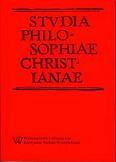
We kindly inform you that, as long as the subject affiliation of our 300.000+ articles is in progress, you might get unsufficient or no results on your third level or second level search. In this case, please broaden your search criteria.

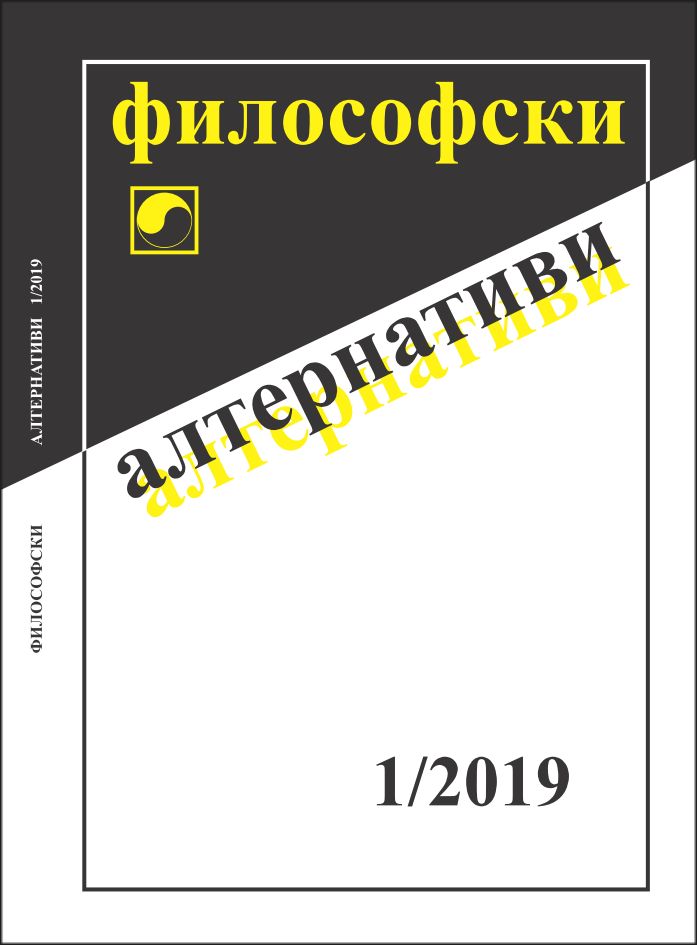
For Heidegger, the Logos is а „gathering together” of being from its disclosure in the existent, and as such, the concept always implies and enters into a connection with the existent. Within the framework of Palamite theology, the same can be said, with astonishing consistency, about man within the space of the ontotes, the living space revealed by God to the existent, inasmuch as in man, as in the existent, being flashes forth. Man receives it as a “grace” within himself, entering with his own being into a connection with God by grace (kata harin); man “gathers together” within himself, most really, God's being ad extra, and thus, by communicating with God, exercises "logic" in the Heideggerian sense. The trinitarian and oikonomian dimension by the Son (Logos) finds in man the same correspondence – through human being in the sense of Heidegger’s Logos. The two (dia) indicate that the being gathered through the Son, and also through man, is included in the communication between the Creator and creation.
More...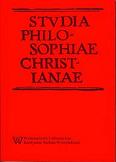
The aim of this paper is to examine one of the best known and most frequently disapproved philosophical ideas: namely, theodicy. Some classical arguments formulated by Plotinus, Augustine, and Leibniz are examined. Then, Kant’s harsh critique of theodicy is introduced. The main aim of our suggested reinterpretation of the classical debate is to employ a new definition of evil formulated by Richard Kearney. Having considered evil as ‘something that must be actively contested’, the theodicean reasoning should be reimagined. The paper will advance from the rational vindication of God’s goodness and justice to the portraiture of God’s active contestation of evil. The metaphysical thought of Plotinus, Augustine and Leibniz is to be redirected from its past orientation towards a future disposition. The Kantian idea of an authentic theodicy based on the Book of Job will also be introduced. This will allows us to steer firmly between the Scylla of a metaphysical overlooking of individual suffering and the Charybdis of disregarding God when facing evil.
More...
The answer to the question whether Dionysius the Areopagite was a Neoplatonist, a Christian or both determines the interpretation of his writings. In this paper, I will try to demonstrate what Dionysius has to say about the relationship between theology and philosophy. I claim that Dionysius should initially be understood as a Christian; however, he does not exclude the role of philosophy in our attempts to achieve some kind of knowledge of God. According to Dionysius, theology and philosophy are in perfect harmony, because they have the same intention, to tell us something about the primary cause of everything (God). However, the only thing that can be established about this primary cause is that it goes beyond all our possibilities of knowing. Dionysius calls this truth about God aphophantic truth, and we can find the roots of this idea both in philosophy (especially in philosophy of Proclus) and in Christianity.
More...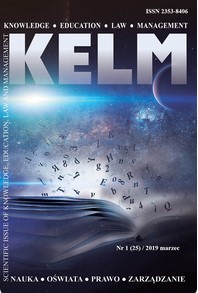
The article deals with the analysis of various aspects of the mutual influence of culture and religion, because reinterpretation of religion values, a meaningful, semantic element of religion is necessary and has evident practical dimension that affects forming of the optimal cultural paradigm.
More...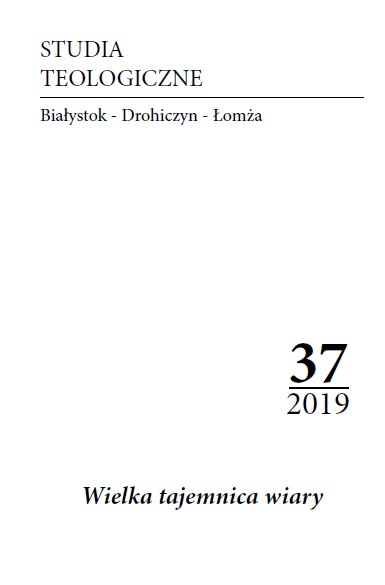
Testimony is a key concept of fundamental theology, because this science is based not on experience but on the testimony of people who have met God. In the New Testament, the first witness who gives testimony of God as his father is Jesus Christ, who performs self-revelation to the world. According to John the Apostle, the Apostles are the main witnesses of the Son of God, because they personally met the Lord and received His teaching. Saint Paul defines a witness as a person who met the Savior through faith and accepted His teaching. The task of Christ’s disciples is to pass on this meeting. The ancient philosophy has given the basis for understanding testimony as martyrdom, in which the philosopher witnessed the truth about the world of ideas that he discovered. The philosopher not only delivered his views to others, but also lived according to this exemplar. Socrates is an example of a teacher who was faithful to his views up to the sacrifice of his own life. Philosophy becomes for the ancients the skill of proper life, that is why the martyr is the one who lives in the right way until death. Christian martyrs thus testify that they are convinced of their resurrection. Becoming a martyr does not depend on the type of death suffered, but mostly on the idea of imitating Christ in carrying the cross.
More...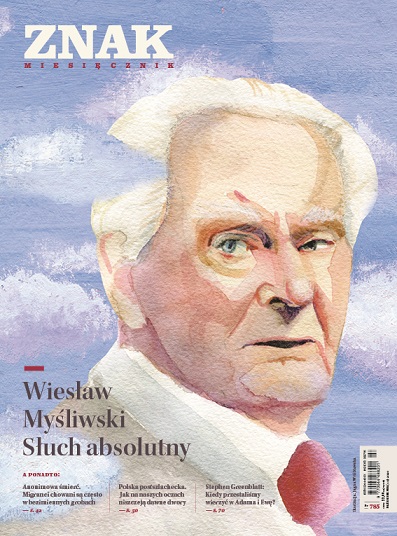

Nietzsche’s stance that it is to be written only of that which has been successfully handled may prove thematically ambiguous in a number of ways. Given that relevant interpreters of Nietzsche may consider this title as nothing but a forgery, a genuine approach to the thematic development of such a title has to establish a possible subtitle: what could religious life without religion even mean? Indeed, does this title contain anything but an unsuccessful provocation?! Is it too little to say that religious life as discussed here, understood through the key of Nietzsche’s philosophy, has nothing to do with the life of religiosity?! Nietzsche presents this “cheapest and most innocent mode of life” as bodying forth of the great mind in the pervasive intoxication. His language becomes a dance with things, while wisdom in such a dance appears as belonging to that which is infinite. This examination will, in comparison with the contemporary, attempt to shed light on such a thought landscape.
More...
Conversation between Tomasz Polak and Sebastian Dudą
More...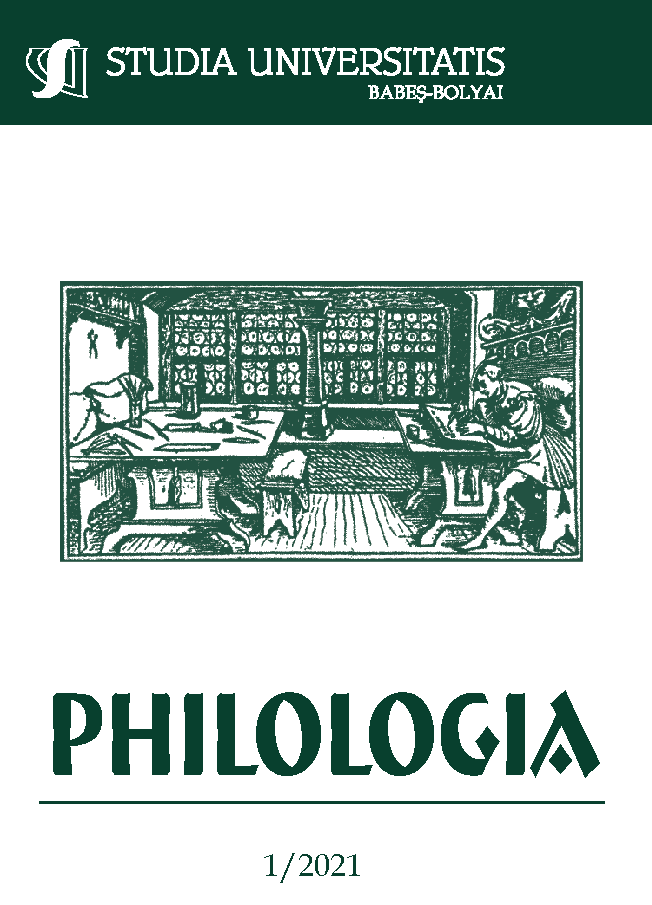
Towards an Integral Study of Religiosity Rooted in Mircea Eliade's New Humanism. The present article advocates for the development and the implementation of a philosophy of religiosity informed by Mircea Eliade’s new humanism, Eugeniu Sperantia’s axiotropism, D. D. Roşca’s outlook on human existence and Aurel Codoban’s hermeneutic philosophy of religions. If such an integral study of religiosity were to be accommodated by a new educational paradigm, the resulting humanist pro-social education would protect society from underlying drivers of polarisation such as religious dogmatism and fundamentalism.
More...
The Paper deals with some contributions of E. L. Mascall in the field of natural theology. After some preliminary conceptual remarks, the author goes on to explore some of the fundamental notions and discussions relevant for the clear review of Mascall's cosmological argument. Although the author shows where he thinks that the argument goes astray, his main concern is to show that the argument presupposes two very different kinds of philosophical reasoning — namely, one that is bound up to some sort of phenomenology or even existentialism and the other that is done in the classical „analytic“ mode of doing metaphysics. In the concluding section, the author offers a simple analysis of the argument by trying to reformulate its claim in a sentence of propositional logic.
More...
This work presents the thoughts of a well known contemporary Christian thinker, Nikolai Berdyaev, on humanism. Humanism, in its essence, represents the attitude that the good of mankind is of utmost importance. Although it stemmed from Christianity, humanism in modern age most often means that striving towards this good has no connection with the God. The drama of atheistic humanism, which ends with its inevitable transition into anti-humanism, is clearly presented by Berdyaev based on the historical development of humanism, some prominent thinkers’ thoughts about a man, of which the most significant are Dostoevsky, Nietzsche and Marx, as well as the insight into sociopolitical striving in the newer history of mankind.
More...

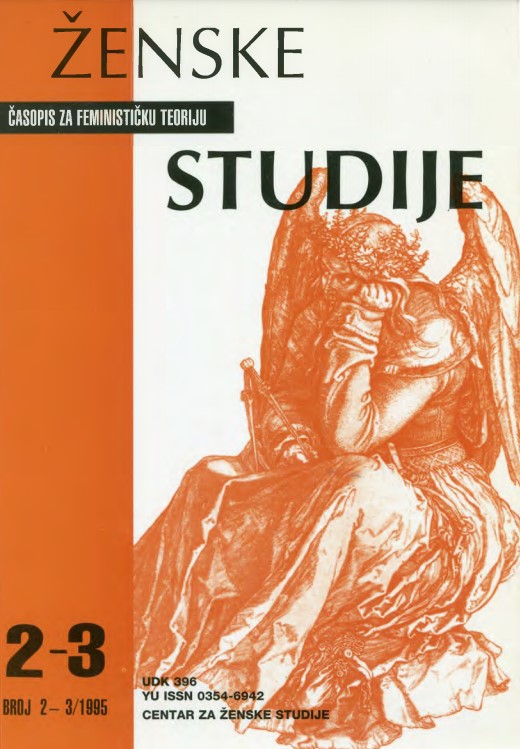

The paper explores the relation of prof. Slobodan Žunjić, who is undoubtedly our most important living philosopher, towards the Christian faith, tradition and theology. While exploring that relation, the author used three kinds of sources: (1) Žunjić’s published works, (2) private conversations of the author with prof. Žunjić and (3) testimonies of contemporaries in relation to this topic. This doxographical article can be divided into three parts: the first part contains Žunjić’s personal attitude towards the Christian faith, the second part concerns his place in Yugoslavian philosophy in relation to the Christian tradition. The topic of the third and last chapter is the possibility of the symphonic relationship between philosophy and theological thought.
More...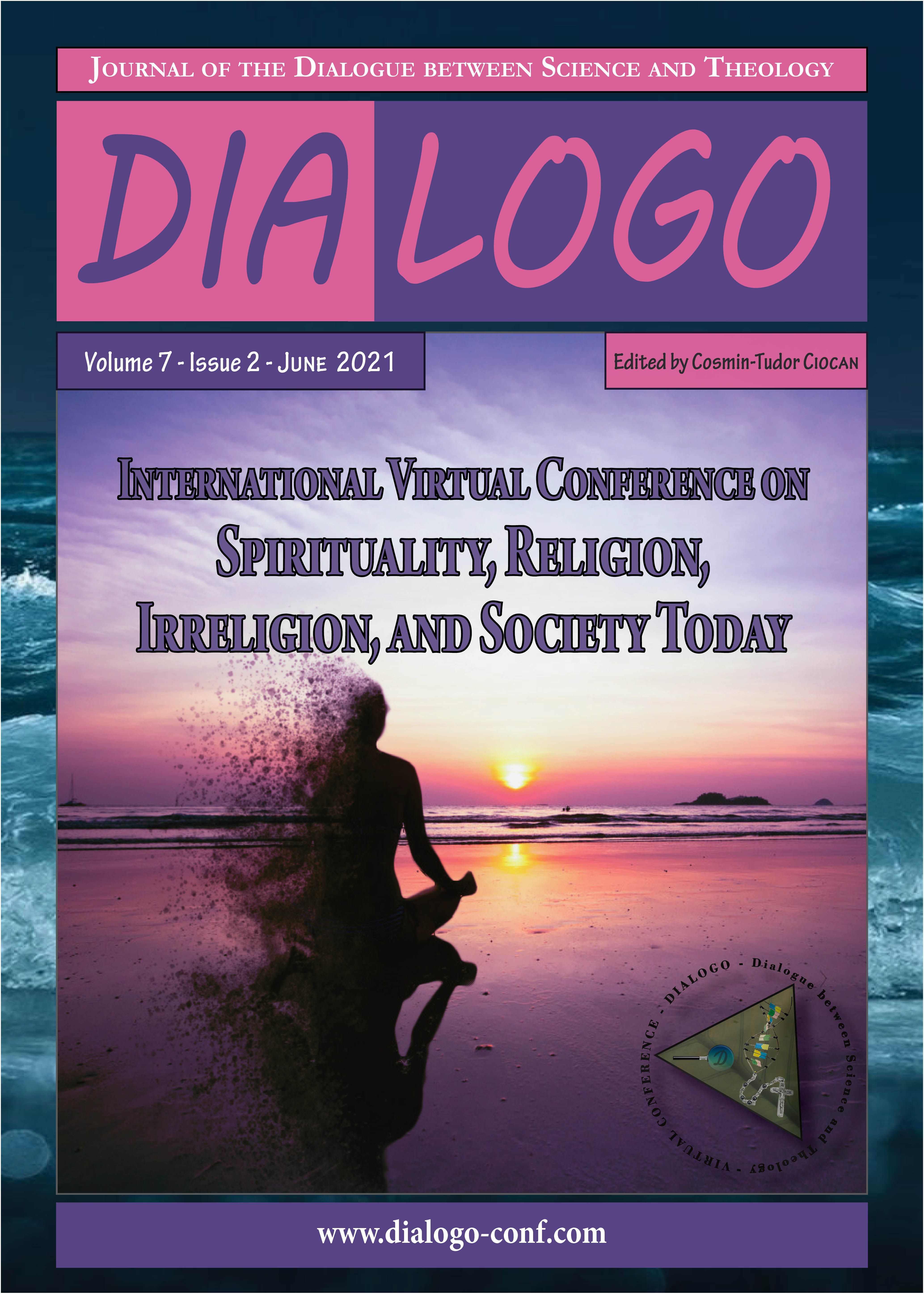
This study investigates the relationship between music and healing in the African context, as well as the relationship between music, culture, and identity. Since the traditional approach to music-making makes it a part of the institutional life of the Bapedi community, among the Bapedi people, the music itself was and is thought to enable communication with the living-dead, often inducing ancestral spirit possession, ‘causing the spirits to descend’. We observe in this study how traditional healers in the Greater Sekhukhune District Municipality express their emotions through music, and how they use music for regulating their emotions during malopo religious rituals. The main goal of the study was to examine how these emotions relate to traditional healers’ mental health and wellbeing. A range of data collection and analysis were employed in this study. The research employed a naturalistic approach and the primary source for data collection was oral interviews. The data was collected through video recordings of malopo religious rituals, interviews, and observations. Relationships between music, expression, and movement, as well as music, culture, and identity were elucidated. The results have demonstrated that during the dance itself, the healing power of the dance, is shown by both the trainees and their traditional healers, for example, during malopo ritual, after reaching a state of trance, they become spiritually healed. Villagers who witnessed the dance and participated only as an audience, also indicated a feeling of wellbeing after participating in the malopo ritual. The study has revealed that music is an integral part of the Bapedi culture and heritage. Furthermore, it was found that malopo ritual is a performance for appeasing possessing ancestral spirits such as those of the traditional healers and their trainees, which may cause illness if displeased, but on the other hand, may empower the traditional healers to execute the healing process. The research suggests that malopo ritual binds the people to their ancestors (the ancestral realm) and also provides healing therapy. Songs are sung and recited in order to create harmony between the living and the living-dead.
More...
Time has always been one of the top priorities and permanent concerns of humanity. It is a controversial and difficult subject to the frame by the philosophers of Antiquity and by the scientists of our day. The problem of defining time has raised questions about the essence, origin, content, meaning and value of time. Studies of Time represent a complex and ever-actual subject. Over time, different attempts to define time have been made, all referring only to a certain kind of time and not to time itself.In this regard, Solomon Marcus said the following: “As easily as we intuit it, as difficult as we conceptualize it, no one has been able to define it”[1], showing the difficulty of trying to define this strange impenetrable category. Thus, people know how to quantify the time elapsed between two events, but they do not know how to define it or explain time as a “moment.”[2] To live time is natural and easy, but when it is meant to be questioned and discussed, it turns into a misleading, imprecise, even more complex matter. “Even the modern attempts of time measurement, which today seems to us to be a common fact, has a history of the most complicated and contradictory thinking “[3]. The questions: what is time? and does Eternity exist? remain the main work paradigm of thought for Contemporary Society.
More...
The existence and characteristics of God have been of the most important discussion topics in the history of philosophy, and philosophical discourses about the existence of the Holy have reached a wide range of discourses in a dialectical line. The arguments for the existence of God also require a holistic perspective in the context of his relationship with the universe and the possibility of man to know God. The first criticism that Simon makes to the evidence in question is that they are already conceivable by very few people who do not need God to be proven to them. Secondly, the contradictions that will arise from explaining subjects such as God's attributes and creation with some analogies and the anthropomorphic understanding of God are the compulsions that contribute to the atheist thought. Nevertheless, Simon speaks of two conclusions of the God proofs: The unity of the existence of God and the ultimate point of all evidence is the concept of eternity. As a result, Simon criticizes his philosophical attitude of explaining everything by emphasizing the limits of the human mind and tries to show that knowing what we cannot comprehend is a kind of philosophical knowledge.
More...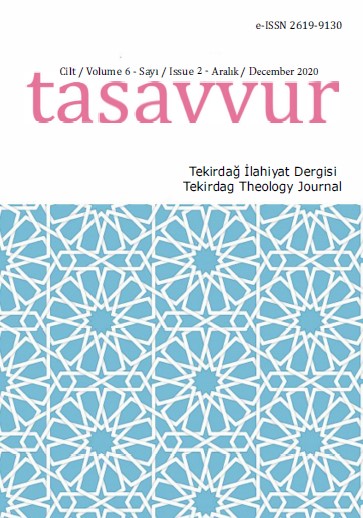
Arguments for the existence of God, if assumed to be successful, show at most that there is at least one god. What if there are more gods that exemplify the attributes ascribed to God on the basis of these arguments? This is known as the problem of the uniqueness of God and had been discussed extensively in Medieval philosophy. Muslim mutakallimūn offered a famous modal argument for the uniqueness of God, which is known as burhān al-tamānu. According to this argument, the postulation of two omnipotent gods that have free will leads to a contradiction in a possible world. Thus, by a reductio argument this postulation is shown to be problematic. In this article, I assume that burhān al-tamānu is successful and consider the case as to whether two gods can have necessarily the same will. After I examine all the scenarios in which this assumption is held to be true, I show that all scenarios lead to problems. In this regard, I make use of another argument formulated by the Muslim mutakallimūn, which is known as burhān al-tawārud. This argument aims to show that two gods having the same will over the same thing leads to problems. After updating this argument, I show its relevance to the discussion in question.
More...